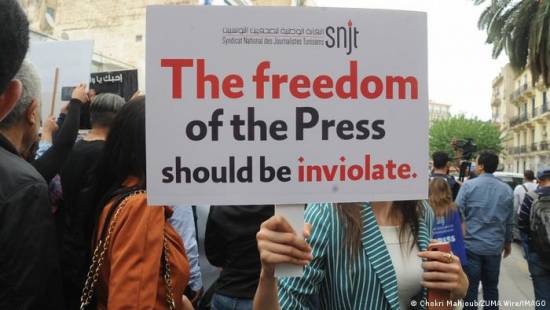Tunisian President Kais Saied on Friday issued a decree imposing a prison term of up to five years for spreading "fake news."
A term of up to 10 years can be handed out when the fake news or rumors are deemed to target top officials, the law said.
Spreading fake news is also punishable by a fine of 50,000 dinars ($15,600, €15,580).
The offense is defined in Saied's decree as "deliberating using communication networks and information systems to produce, promote, publish or send false information or rumors."
A 'setback for rights'
"The decree is a new setback for rights and freedoms. The penalties for publishing in any networks are a strong blow to the revolutionary values that granted freedom to all journalists and all Tunisians," Reuters news agency cited journalists' union head Mahdi Jlassi as saying.
Since Tunisia's revolution in 2011, the country has had one of the most open media environments in the Arab world, and the country's state-owned TAP news agency frequently reports criticism against the government.
Critics of Tunisia's president accuse Saied of engaging in a power grab last year, when he froze the country's parliament and enacted a decree expanding executive power. The decree was later enshrined in Tunisia's new constitution, which was ratified in a referendum this July that saw 30% voter turnout and was boycotted by a number of major parties.
Agencies


